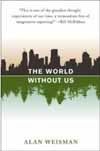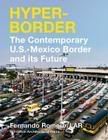Where do presidential candidates get their information about the issues facing the country today? I know they're privy to classified reports, academic studies, and other sources that aren't available to the average guy like me, but do they ever just read a book? Each of these books deals with an issue that's important to me. Most of them aren't overtly political books -- they couldn't really be labeled "liberal" or "conservative"-- but they each detail a problem facing the country, and in some cases, a potential solution to that problem. Oh, and there's a novel, because everybody should read a little fiction, even the President of the United States.

 The Omnivore’s Dilemma and In Defense of FoodMichael Pollan
The Omnivore’s Dilemma and In Defense of FoodMichael Pollan No issue is of greater importance right now than the food we eat. It’s interconnected with the issues of climate change (bovine flatulence accounts for more greenhouse gases than automobiles), health care, immigration, and the economy. These two books show how industrial agriculture, the demand for cheap meat, and the “nutritionism” movement have changed the way Americans eat for the worse. While The Omnivore’s Dilemma illustrates the current American food culture, In Defense of Food offers a way out of it.
 Cradle to Cradle
Cradle to Cradle
William McDonough and Michael Braungart
Are hybrid cars and t-shirts made from old water bottles good for the environment? Not according to McDonough and Braungart. These products and the “Reduce, Recycle, Reuse” mantra they embody aren’t really good for the environment, they’re merely less bad. McDonough and Braungart advocate overhauling how we make things – from factories to books (their book is printed on a plastic polymer, not paper made from a tree). After reading their argument, you’ll never think about the man-made objects in your world the same way again.
 The World Without Us
The World Without Us
Alan Weisman
If human beings were to disappear completely, how long would it take for the world to recover from our impact? How long before wild animals and plants reclaimed Los Angeles, for instance? Weisman imagines a scenario in which mankind is gone, but his legacy remains in the billions of tons of plastics and rubber tires that will take thousands of years to degrade. In thinking through this “thought experiment,” Weisman reveals what we’ve done to the earth and what it would take to undo it.
 Legacy of Ashes: The History of the CIA
Legacy of Ashes: The History of the CIA
Tim Weiner
The failure to create a first-rate intelligence service has haunted every American president since Harry Truman, and it will haunt the next one if he or she doesn’t do something to fix the CIA. In a driving, focused style, Weiner shows exactly where the CIA went astray (a constant emphasis on covert action at the expense of intelligence gathering, for instance), and what could have been done to stop it. With accurate intelligence, a great many lives can be saved.
 A Problem from Hell: America and the Age of Genocide
A Problem from Hell: America and the Age of Genocide
Samantha Power
Once again, America has stood by while genocide occurred. Perhaps if we hadn’t been fighting wars in Afghanistan and Iraq we’d have done something about the massacre in the Sudan. Or maybe if the genocide had been happening in Europe, we’d have stepped in. Probably not, argues Powers, whose critique of American foreign policy stretches from Woodrow Wilson to Bill Clinton. Every American president of the last hundred years has promised “Never again.” It’s a shame none of them has made good on this vow.
 The Looming Tower: Al-Qaeda and the Road to 9/11
The Looming Tower: Al-Qaeda and the Road to 9/11
Lawrence Wright
Whoever is going to be president will need to know a thing or two about radical Islam. This gripping history of the modern extremist movement in Islam is a great place to start. Wright begins his story with the prophet Ibn Qutb and continues through Zawahiri and bin Laden, detailing the philosophical and spiritual tenets of the movement and how they dovetail with the political and economic concerns of the Middle East. While the book reads like a thriller, it never falls into the trap of sensationalizing the men who planned and executed the 9/11 attacks.

 Random Family
Random Family
Adrian Nicole LeBlanc
Nickel and Dimed
Barbara Ehrenreich
In every election, there’s a great deal of lip-service paid to the “working poor.” Here are two books that take a look at what it’s actually like to be poor in America. LeBlanc spent ten years with a family in the Bronx while Ehrenreich went out and took jobs as a waitress, housekeeper, and a Walmart cashier to find out what it was like living on a salary of $6 to $7 an hour. Both books get beyond statistics and sensationalism to the heart of what is often the unspoken issue on the campaign trail.
 Maxed Out: Hard Times in the Age of Easy Credit
Maxed Out: Hard Times in the Age of Easy Credit
James D. Scurlock
We’re heading for a major financial crisis in this country, and consumer debt is a big reason why. With “subprime” fast becoming the “junk bond” of our generation, everybody could stand to read this examination of America’s addiction to credit. The companion to the documentary of the same name, this fascinating and frustrating book exposes the immensely amoral business of lending money.
 Hyper-Border: The Contemporary US-Mexico Border and Its Future
Hyper-Border: The Contemporary US-Mexico Border and Its Future
Fernando Romero
Here in Southern California, immigration has long been a political flashpoint. Now the rest of the country is starting to pay attention to this issue. This book presents a multi-discipline examination of the US –Mexico border. Bipartisan in its politics, this exhaustively researched book delves into the future of the region. Can it withstand a 700-mile fence? How about gangs of vigilantes? What is the economic and political future of the region on both sides of the border?
 American TabloidJames Ellroy
American TabloidJames EllroyYes, this book is about the Kennedy assassination (and the Kennedy election...and the mob...and the CIA...and the connections between all of these), but that's not why it makes this list. It's here because, well,
I want a president that reads fiction! And besides, this is a really, really good book. It's a page-turner without being fluff. This is Ellroy pushing his style to its limits, but not going to the extremes that he will in the sequel,
The Cold Six Thousand. This is the kind of book that will take you all of a weekend to read, but that you'll remember for the next ten years. The perfect book for a Camp David retreat!

 The Omnivore’s Dilemma and In Defense of Food
The Omnivore’s Dilemma and In Defense of Food Cradle to Cradle
Cradle to Cradle The World Without Us
The World Without Us Legacy of Ashes: The History of the CIA
Legacy of Ashes: The History of the CIA A Problem from Hell: America and the Age of Genocide
A Problem from Hell: America and the Age of Genocide The Looming Tower: Al-Qaeda and the Road to 9/11
The Looming Tower: Al-Qaeda and the Road to 9/11
 Random Family
Random Family Maxed Out: Hard Times in the Age of Easy Credit
Maxed Out: Hard Times in the Age of Easy Credit Hyper-Border: The Contemporary US-Mexico Border and Its Future
Hyper-Border: The Contemporary US-Mexico Border and Its Future American Tabloid
American Tabloid
1 Comments:
Nice list.
Post a Comment
<< Home